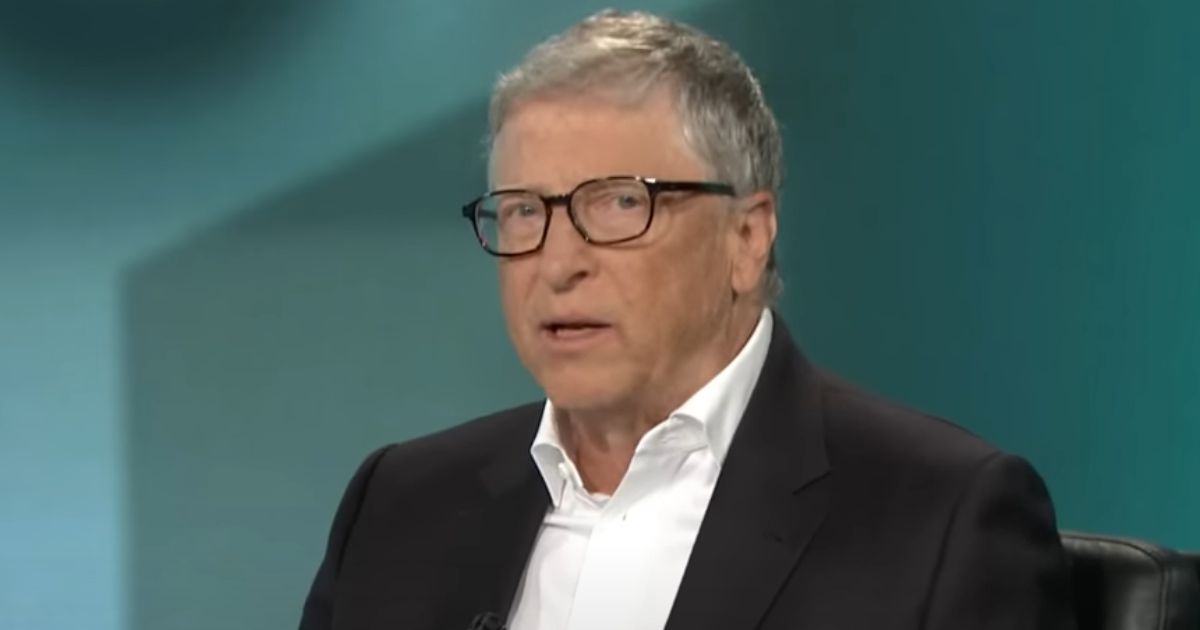Politics
Gates Cozies Up to Kenya for Birth-to-Death Digital ID Program Rollout Already Drawing Public Concern

The Bill and Melinda Gates Foundation reached an agreement with the Kenyan government to provide services for a lifetime digital identification system.
However, the ID system faced resistance from the public — and was placed in limbo by a court ruling this month.
Bill Gates held several “closed-door meetings” with Kenyan President William Ruto and other government officials before the agreement was announced, according to The HighWire.
Ruto said the ID system, called Maisha Namba, is “meant for his government to enhance service delivery to citizens,” Kenyans.co.ke reported.
Julius Bitok, the country’s principal secretary of immigration and citizen services, said the current ID system is about 30 years old and needs to be replaced.
“Kenya’s National Registration and Identity system currently trails behind other countries in the region, exposing it to non-compliance sanctions by international standards’ enforcement agencies,” Bitok said on Sept. 16.
“Digitisation of registration services will also address challenges related to identifying and authenticating Kenyan citizens. It will also promote the security of primary registration documents [birth certificates and national identity cards],” he said.
Maisha Namba is described as a “third-generation ID card system” through which every Kenyan citizen will be assigned a unique number allowing them to access government services.
Lydiah Njogu, registrar of persons in Nyandarua County, said the ID number “will serve as a lifelong identity from birth to death and will replace traditional birth certificate numbers,” according to Kenya News.
Njogu said it also will be used “for government services, including education enrollment, health insurance and others, while also serving as a Personal Identification Number (PIN) for tax and social security purposes,” the outlet reported.
That might not happen for a while, however. The Kenya Times reported Dec. 5 that the country’s High Court had halted the ID system’s rollout in its pilot phase.
The Katiba Institute had filed a petition challenging the program, arguing Kenya had no legal basis to implement the Maisha Namba system.
Justice John Chigiti ruled that the filing had merit, sending the government ID effort back to the drawing board.
Gates’ involvement in Maisha Namba has cast a shadow over the program, according to the Times.
“Our role is always as an adviser,” Mark Suzman, CEO of the Gates Foundation, told Business Daily Africa in October. “We can connect the government to key technical experts and partners, but we’re very encouraged by what we see and by the President’s commitment.
“We have a number of specific investment support on digital identity. We actually provide it to broader platforms.”
The foundation said it sees “vast opportunities that can be unlocked through the existence of a digital identity in Kenya,” the outlet reported.
“This is a huge priority of President Willam Ruto, and we think very appropriately so because a strong, robust, open-source digital identity system actually becomes a platform that not only leverages financial inclusion, where Kenya is already a global leader but can be a platform that actually drives important advances in health care, in education and other services,” Suzman said.
According to The HighWire, however, Bitok said Maisha Namba also would be entwined with the National Insurance Fund and Kenya Revenue Authority.
“These ties will no doubt open the door for a social credit system similar to what is feared by those paying attention in the United States to take hold of life in the vulnerable and naive land of opportunity for the likes of deep-state charlatans like Bill Gates,” the outlet said.
The Star of Kenya reported in October that residents of the northeastern town of Garrisa were urging the government to cancel the launch of the program.
“My appeal to the government is to kindly reconsider this digital system. As we speak, most areas in Garissa, especially the rural areas either have very poor networks or do not have networks at all,” said Anab Abdullahi, the leader of a group opposing Maisha Namba.
“We know very well that for this system to work it largely depend on the availability of a stable network,” Abdullahi said, according to the Star.
Aden Abdullahi, another activist, said, “We are the same as other Kenyans who pay taxes. We should not be treated like second-class citizens.”
The Gates Foundation has been pushing for a customizable digital ID system since at least 2018. That’s when it launched the Modular Open Source Identity Platform, which countries could adopt free of charge.
It claims on its website that digital IDs “are an effective tool against poverty.”
“The MOSIP team hopes that the system will register 1 billion people over the next decade, while they work on ways to integrate it with other systems to make life easier for people,” the Gates Foundation site says.
According to Biometric Update, the United Nations Development Programme supports the Kenyan ID program.
“Rights groups have also been expressing concern over the possibility of discrimination and the erosion of privacy,” the outlet reported.
This article appeared originally on The Western Journal.
Read the full article here


















